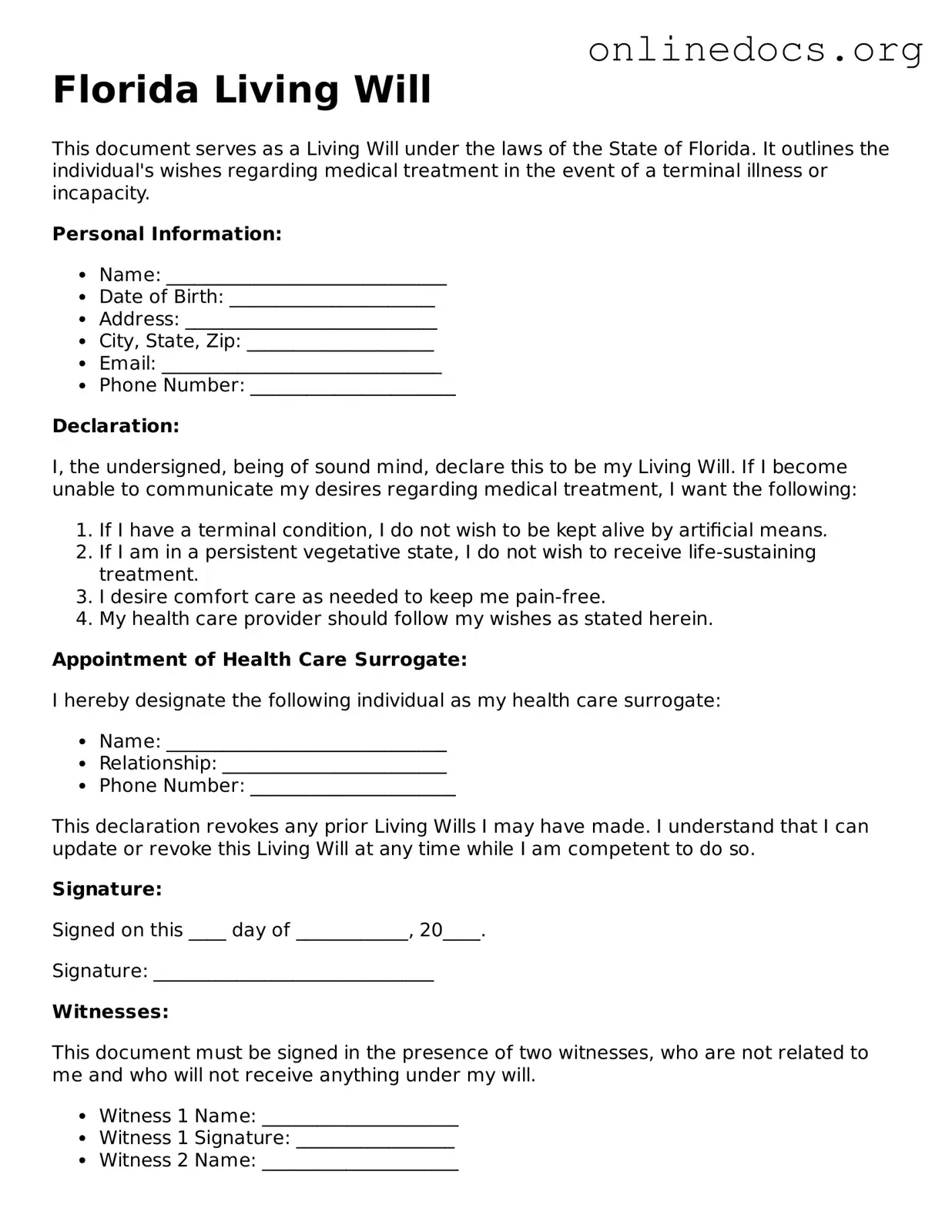Completing a Florida Living Will form is an important step in ensuring that your healthcare wishes are respected. However, many individuals make common mistakes that can lead to confusion or even invalidate the document. Understanding these pitfalls can help ensure that your intentions are clear and legally binding.
One prevalent mistake is failing to date the document. A Living Will without a date can create uncertainty about when the wishes were expressed. This omission can lead to disputes among family members or healthcare providers regarding the validity of the document. Always remember to include the date you sign the form.
Another frequent error involves not being specific enough about your medical preferences. Vague language can lead to misinterpretation of your wishes. It is crucial to clearly outline the types of medical treatments you do or do not want in specific situations. Clarity helps ensure that healthcare providers understand your desires without ambiguity.
Some individuals overlook the requirement for witnesses. Florida law mandates that a Living Will be signed in the presence of two witnesses. Failing to have witnesses present during the signing process can render the document invalid. Ensure that your witnesses are not related to you or beneficiaries of your estate to comply with the legal requirements.
Inadequate communication with family members is another mistake that can complicate matters. After completing the Living Will, it is vital to discuss your wishes with your loved ones. This conversation can prevent misunderstandings and ensure that your family members are aware of your decisions when the time comes.
People often neglect to review and update their Living Will regularly. Life circumstances change, and so do personal preferences regarding medical treatment. Failing to revisit the document can result in outdated wishes that do not reflect your current values or desires. Regularly review your Living Will, especially after significant life events.
Additionally, individuals may fail to keep copies of the Living Will in accessible locations. It is important to distribute copies to trusted family members, healthcare providers, and legal representatives. If the document is not readily available when needed, it may not be honored, defeating its purpose.
Another common oversight is not understanding the difference between a Living Will and a Durable Power of Attorney for Health Care. While both documents address healthcare decisions, they serve different purposes. A Living Will specifically outlines your wishes regarding end-of-life care, while a Durable Power of Attorney designates someone to make healthcare decisions on your behalf. Confusing the two can lead to gaps in your healthcare planning.
Lastly, individuals sometimes fail to seek legal advice when completing their Living Will. While it is possible to fill out the form independently, consulting with a legal professional can provide valuable guidance. A lawyer can help ensure that the document complies with state laws and accurately reflects your wishes, minimizing the risk of mistakes.
